Tiger King British Edition – My Unshared Story About Working with Lions
During this quarantine, everyone seems to keep obsessing about The Tiger King on Netflix yelling that everyone in this series should go to jail and how fucked the USA must be to let people keep captive tigers and others to visit these spots.
Frankly, I gave up on watching after 3 episodes. It’s crazy and I’m aware that it’s getting even crazier. But to make a movie about it next? I think the obsession with it is way crazier than the actual people featured. Is this what was hoped to be achieved from this series?
People are even dressing their babies like Joe Exotic! Who’s more insane here if you want to dress your kid or put a filter on your face to look like a person who abuses animals and is accused of double murder?
As I’m into psychiatry I always knew that many love to idealize serial killers, but to make Joe a sensation like this? This is next-level crazy.
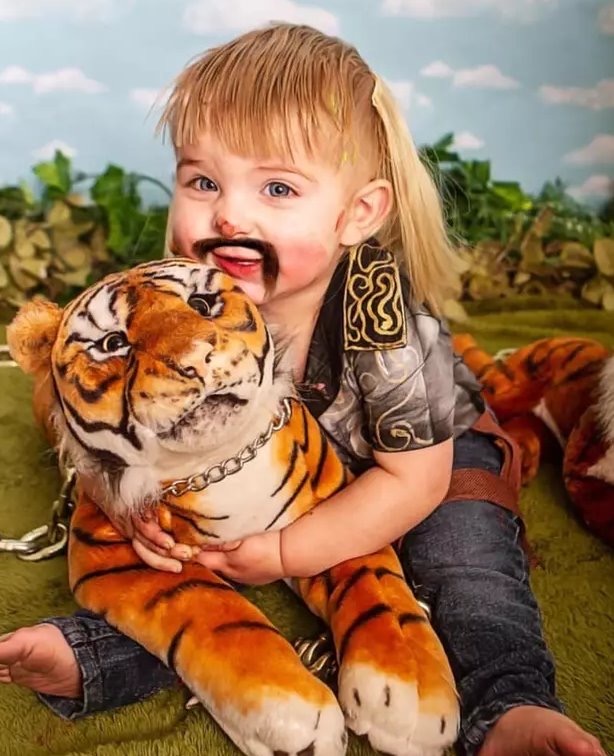
Most people including journalists admit that they had no idea that there are more tigers in captivity in the US than there are alive in the wild? The same thing happens with other big cats too. Try googling how many people keep cheetahs and pumas as pets, or what’s happening to the population of wild lions.
Let me save you some time here – there are only about 20,000 lions left in the wild. Around 14,000 live in captivity in South Africa alone.
Abuse of wild animals, not just tigers, isn’t something that happens just in America. The infamous tiger temple in Thailand, elephant riding, dolphins and orcas in small pools, dancing bears, you name it – it’s happening all over the world.
You know who has been the main consumer of wildlife tourism over the years? Europeans – way before Americans even knew about it. While for many who travel often it can seem like common knowledge, for the most it’s not.
In fact, I have my own story with big cats and crazy people, but until this day I don’t get the fascination. I’m perfectly happy with my ragdoll cat at home.
I never fully shared my past work with lions for a few reasons. First, I thought I might offend the people involved in this story. Second, and more importantly, I was ashamed and scared of being ostracized by the fact that I was even involved in working with big cats so I only shared bits and pieces as diplomatically as I could. The truth is that it happened, so here’s a story for you…
*
Exactly 11 years ago, I moved to London to study at the prestigious University College London. Getting into a top university seemed like a dream. I worked hard for it by graduating from my undergraduate studies in just 1,5 years and trying to improve my English.
For those unaware, I’m not a native English speaker and back then my English was ok (I passed my exams after all), but not great.
On top of being part of a good university, I wanted more. Like every other young adult I had dreams of moving to a big city for a career – hence why I actually picked London vs Oxbridge. However, once I got there I realized that there was a long way between living in London and actually achieving a career I wanted. Cliche.
While my parents helped with the tuition (back then it was about 5-10 times cheaper than it costs now), in order to sustain myself I lived in a room the size of most people’s closets, and naturally had to work for it. With no London or UK experience, I accepted whichever job I could get and in my case, it was a British pub until I transitioned to a fancier bar.
I worked 6 days a week plus doing 12-hour shifts on weekends, right after my lectures. I didn’t mind it.

A whole semester later I haven’t learned much from my studies but learned that I’ll never fully get accepted by my fellow academics who thought less of me because I had to work. When they were heading for dinners after lectures I was going to work.
We never hung out and even my professor told me that he won’t graduate me if I continue working, completely ignoring the fact that unless I work I won’t be able to graduate anyway as I couldn’t afford to just “relax and live in London”.
At just 20 years old (because I graduated early I was a few years younger than anyone else in my class), I was pursuing a Master’s degree with a PhD track, feeling completely lost and disillusioned by the discrepancies between the rich and working class. I decided I needed to get out of the situation by doing something to get noticed. Another cliche.
A normal person would quit school and move somewhere else. I decided to see what the university has to offer. One evening I discovered that UCL recommends various volunteering programs around the world. “A great addition to your CV while doing something good and making a difference” – they were promoted that way.
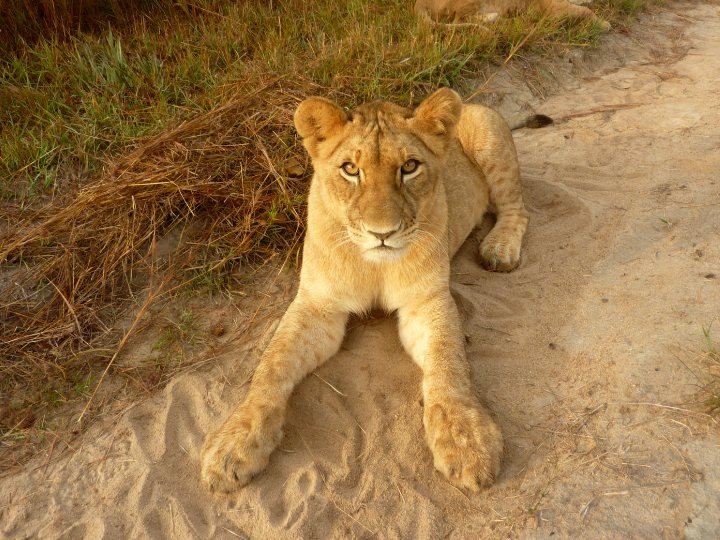
*
I found a bunch of volunteering programs in Africa that got me hooked. I grew up watching slides from Zambia and Zimbabwe as my mom was sent there on a business trip once – for everyone behind the iron curtain in Poland it was a very big deal. I knew I wanted to see it with my own eyes.
I trusted the program because my university recommended it – in my mind how could the top 15 universities in the world offer something not beneficial, right?
I decided I wanted to go to Africa to work with lions, submitted the application and boom – that was it. For the next half a year I saved all my work tips for the flight to Zimbabwe.
Ironically, I started my first ever travel blog (not this one) for this exact trip – mostly because everyone was hyper-excited for me, including my classmates who weren’t my biggest fans before.
Keep in mind that this was 2010 when people still thought riding elephants was a “thing to tick off the list when in Asia” and almost no one has even heard of walking lions, let alone debating whether it’s ethical or not.
The ‘white savior complex’ wasn’t a popularized term yet; probably because the internet wasn’t working the same way it works now. In some places, I still had to connect to the internet by waiting 5 minutes for a beep and got charged per minute, so naturally, blogs or online magazines weren’t really a thing.
When I came back from Zimbabwe, in everyone’s eyes I was suddenly brave for working with lions, compassionate to volunteer and creative to even think of it. Something that these days would be considered problematic and with many people, it would lead to a discussion about ethics, shaming, and so on.
At least with those who follow what’s happening in the world of tourism, but let’s face it – most regular people don’t. This is also why the Tiger King is so popular now, as it’s the first time many have even heard of such places.
For years after every job interview in various countries led to questions mostly about my work with lions. Whether it was marketing, law, hospitality, or even an IGO – everyone was totally hooked by my stories about cleaning lions’ poop and chopping up cows for them.
Instead of looking for my actual experience relevant to a position I was applying for, proving my point just how fascinated everyone has been with big cats.
When I was starting my professional blogging career a few years ago, every media publication and other bloggers (including those who now claim they’ve always hated it) loved featuring my lions on their sites.
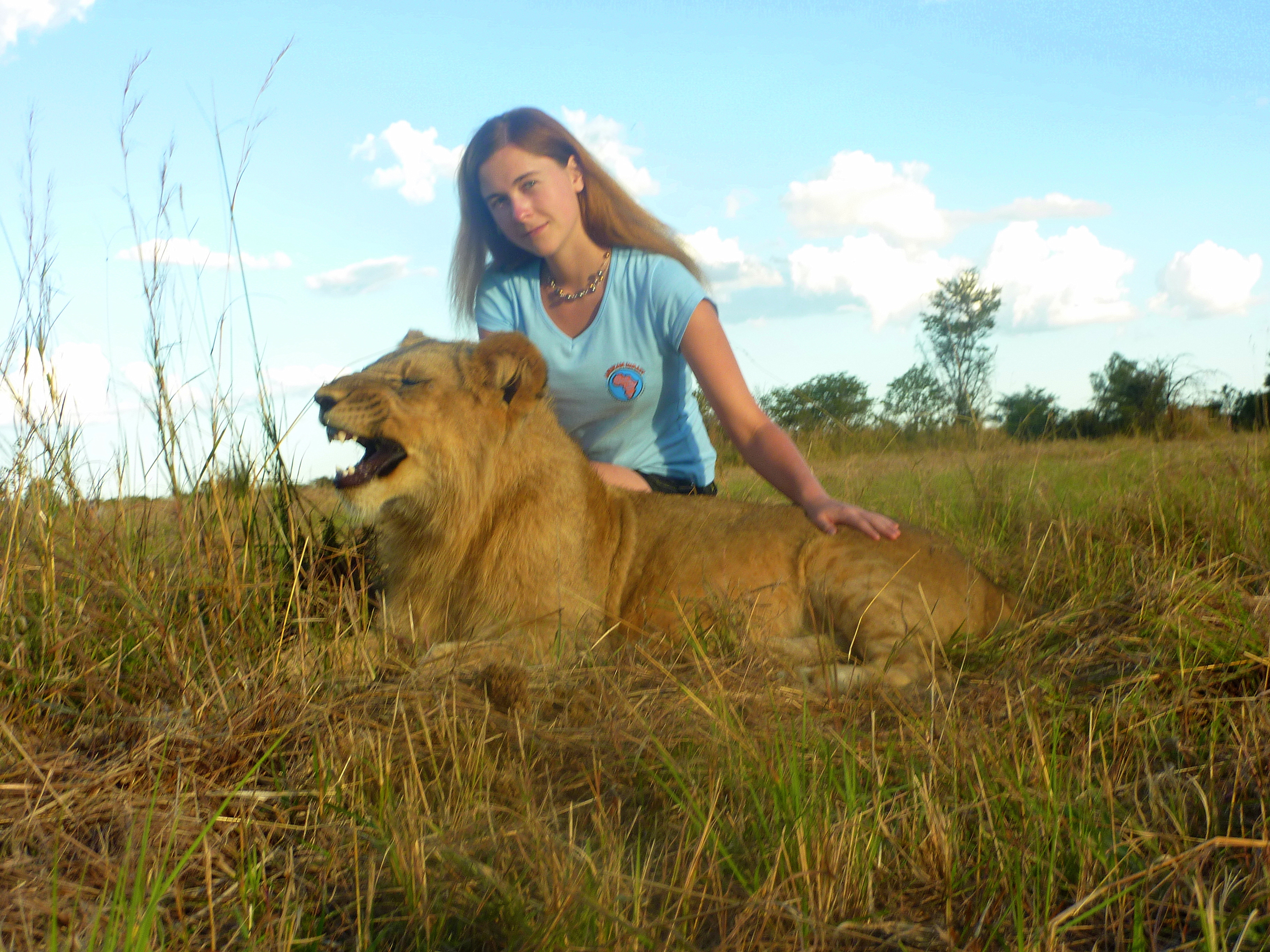
Especially 10 years ago everyone wanted a selfie with a lion, tiger, dolphin, elephant and every other wild animal you can think of. These days many celebrities or those working in high places will deny ever doing so, as they’re afraid of backlash on social media.
But, during my short 2-week stay, I personally met ambassadors of two countries coming to take photos and walk with the lions. And while lions weren’t stuck in small cages like tigers and lions in zoos in Asia, South Africa or the US at this park, tickets to every big cat related place were selling well.
And they continue to sell these days. Have you heard of Steve Irwin and Australia ZOO? Everyone loves and praises Bindi, Robert and Terri – they’re likable and adorable. Guess what though! Even their own ZOO offers animal experiences including “Tiger Cub Walk Encounter” and selfies with cheetahs.
Do you know what would happen if I posted a smiling photo with a tiger cub on my Instagram today? I’d get hate comments. But it’s apparently all good for them to offer it for tourists and do it themselves. I see a double standard here.
[su_row class=””][su_column size=”1/2″ center=”no” class=””]
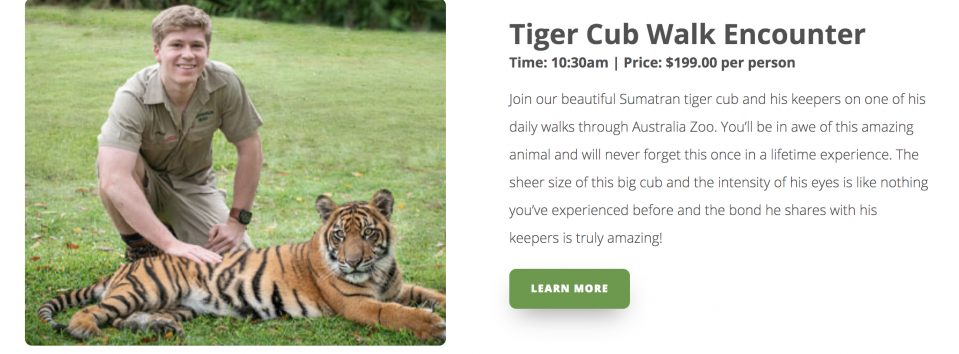
[/su_column][su_column size=”1/2″ center=”no” class=””] 
[/su_column][/su_row]
*
When I landed in the provisional airport in Bulawayo in Zimbabwe I was met by a representative who put me in a desirable villa for white people for the first night – that’s literally what it was.
The next morning, with a banana in hand, I rode a local bus to the town of Gweru in central Zimbabwe to start my work as a lion helper at Antelope Park – a private reserve of 3000 acres of open savannah grassland.
I was put in very basic barracks with other volunteers, but compared to houses where the local staff (AKA non-white) lived our accommodation was luxurious. We worked by cleaning the park that involved a lot of lion and elephant poops, taking care of tourists coming to the park, conducting lion related research, preparing meat or I should say cow chopping, researching hunting patters and training horses. It sounds like voluntourism, and partially it was.
My job was supposed to take part in the lion conservation project with the idea of releasing the adult lions into the wild. What wild though? Within the reserve naturally as there’s no wild to let lions roam free in most places.
I can tell you though that it was definitely not ‘taming lions for hunting trophies‘ kind of place, but even with the knowledge I have now, I wouldn’t be able to tell you which part of the project was legit and which were not.
While it was nothing like the ZOOs from the Tiger King with tiny cages and animals actually could roam free, I cannot say that people didn’t want to “get that selfie with the lion” and interactions with cubs was happening on a daily basis.
But, I would lie if I said that I wasn’t involved in dealing with things I have fond memories of. I helped assist with the caretaking of injured and abused lions taken from ZOOs. I saw them coming “back to life” and being moved to more open space. While they couldn’t be released into the wild, they didn’t spend the rest of their lives in a small cage.
The program was breeding lions as part of ALERT – Lion Research Trust, mainly due to a fact that lions are now extinct in 26 different African countries.
Many lions, however, couldn’t have been released but considering how easily foreign hunters can pay people off to hunt lions (remember the tragic story of Cecil the Lion?) I’m not entirely sure whether releasing lions into the wild is the smartest thing to do.
Especially considering the fact that there are only about 20,000 lions left in the world due to hunting, loss of habitat, and loss of prey. Is breeding good then? It depends, but increasing the population by breeding caged lions to sell them as they do in South Africa (linked article contains graphic photos) isn’t a solution either.
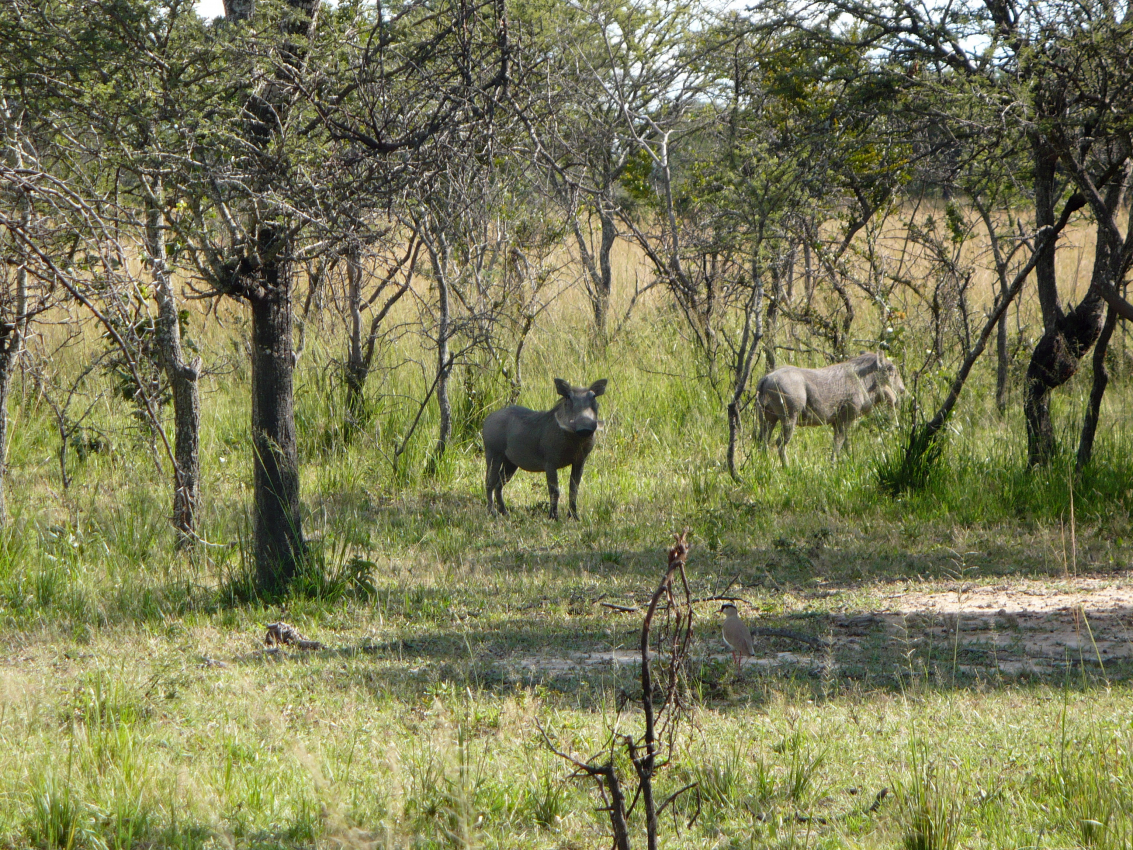
*
That’s not the crazy part of the experience though, the crazy part is how similar things worked. The founder of the park was, as you can suspect, was an old white British-Zimbabwean man, who actually lost an arm due to a lion attack. Similar to other permanent staff like a woman who almost lost a leg when attacked by a lion.
Both of them obviously returned to work almost immediately and loved to underline that these accidents ‘weren’t the lions’ fault’. Sounds familiar? Of course it wasn’t the fault of lions – even my massive yet domesticated cat attacks me sometimes, and lions cannot be fully domesticated – it’s their nature.
On the other hand, none of the volunteers or staff saw any issues with entering enclosures of injured lions that weren’t even raised with humans. I’m surprised an accident didn’t happen when I was there.
I was told to hold a lion cub while others were putting food in their bowls. Let me tell you – small kitties might look small, cuddly and innocent, but when they see food good luck holding them. I couldn’t.
[su_row class=””][su_column size=”1/2″ center=”no” class=””]
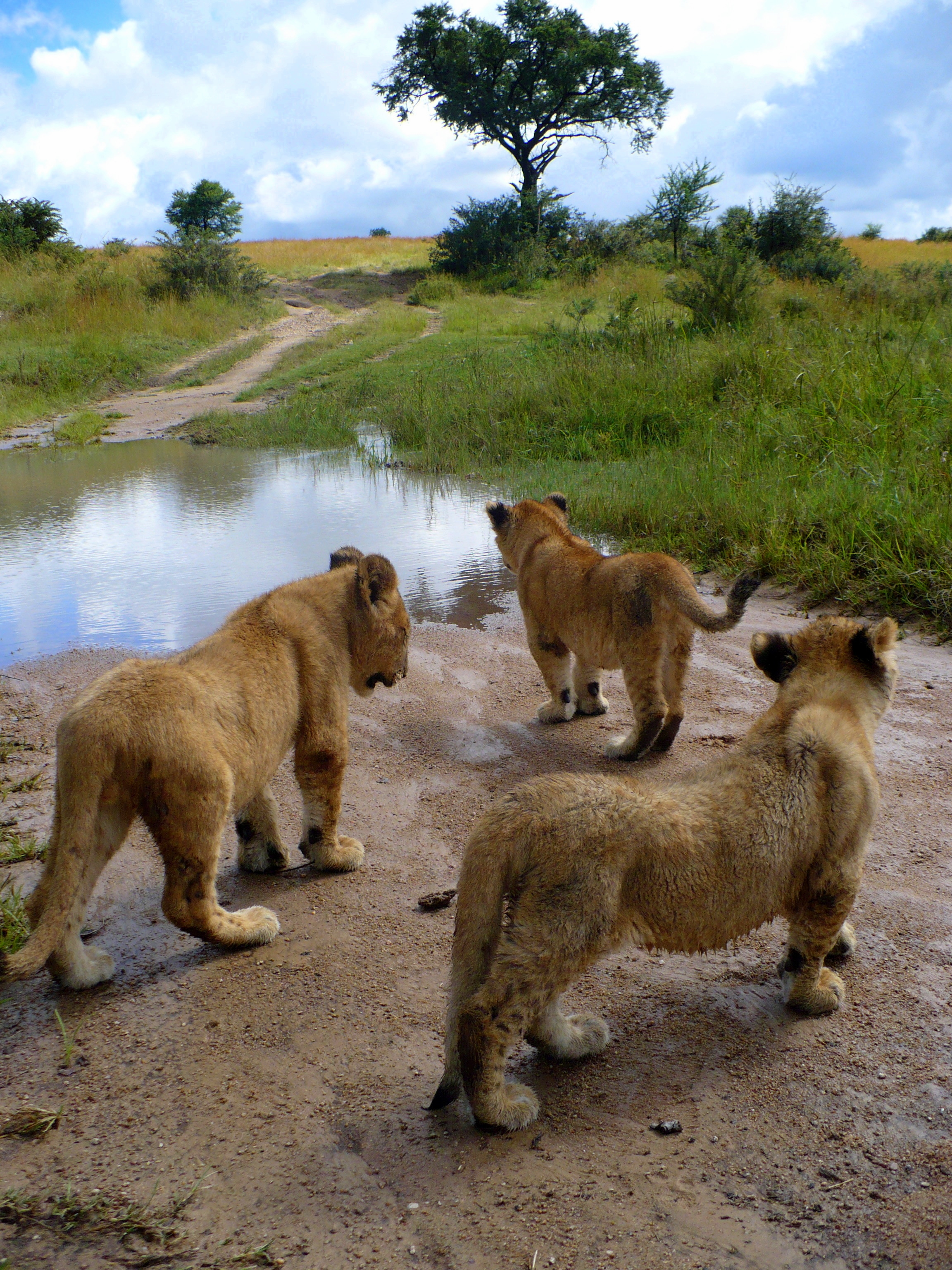
[/su_column][su_column size=”1/2″ center=”no” class=””]
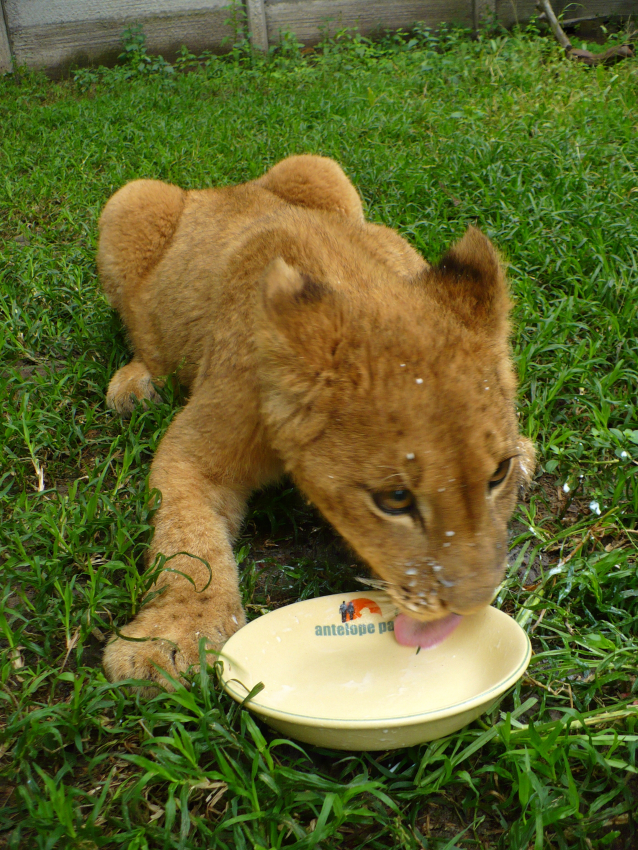
[/su_column][/su_row]
*
Looking back at my experience, ironically, I wanted to leave the world of privileged rich students, but instead, I saw first-hand the world of rich white people in Africa.
The black staff was underpaid, making as little as $2 per day to work in the bright sun all day long. I had enough after repairing and painting a fence in the middle of nowhere at 12 noon in 30 C (90F) and they had to do it every day.
Meanwhile, the owners were eating lavish meals and flying back and forth first-class to the UK. Even if the program was established to do some good to the lion population, it was a business after all.
“But they were all so happy” – we thought about the staff back then. It was true – every single person I met was happy, regardless of their situation. While it taught young volunteers to appreciate the small things more, I feel like it gave many a wrong and naive perception.
Locals weren’t happy because they had a job that paid something. Their situation wasn’t great, but they chose not to give up and carry on. Were they supposed to be sad and depressed their entire life? No, they just learned to appreciate small things but it doesn’t mean their lives were good.
I feel like one thing I learned from this experience was not to judge a book by its cover. I still see many bloggers stating that people were happy so life must be good there. Even with we all know about the high levels of poverty.
I don’t think I was empowering any community, even though my own university thought I would be. I was no hero, I was just some free labor for rich white people.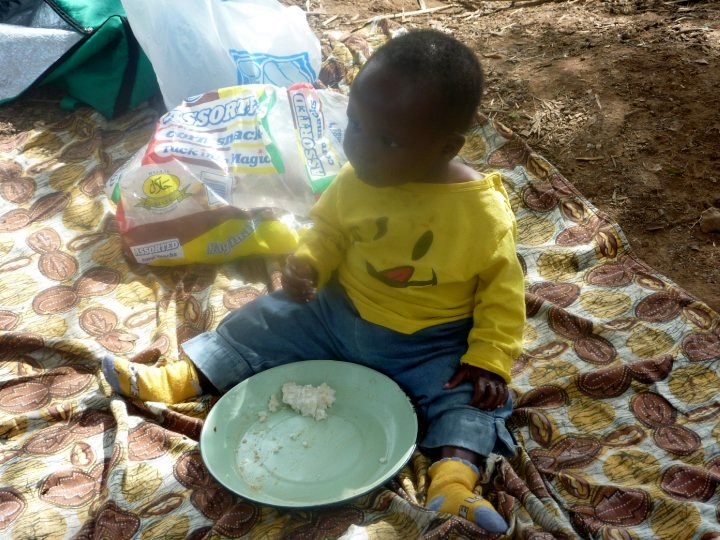
*
One thing that struck me when watching the Tiger King was that everyone mentioned how addictive the big cats were. I literally gasped inside when watching as I witnessed the same exact thing in Zimbabwe.
Most volunteers were young females, mostly European (lots of pretty Norwegians) but there were some Canadians and Americans as well. We all wanted to do something “original”.
One week into their stay and they all wanted to stay in the park forever. We had no Doc Antle to run the harem, but we had many local workers. What seemed like a plausible option was to get together with one of the local lion handlers who worked at the park – that would grant them a visa and a job opportunity. In fact, the permanent foreign staff was the wives of local workers.
Ironically, all the handlers wanted to get together with a foreign girl so they could get a visa and move away to their countries.
If they didn’t find a boyfriend they returned on another volunteering project at the park or went to work with big cats elsewhere. Some left their lives and ended up doing this permanently for another organization.
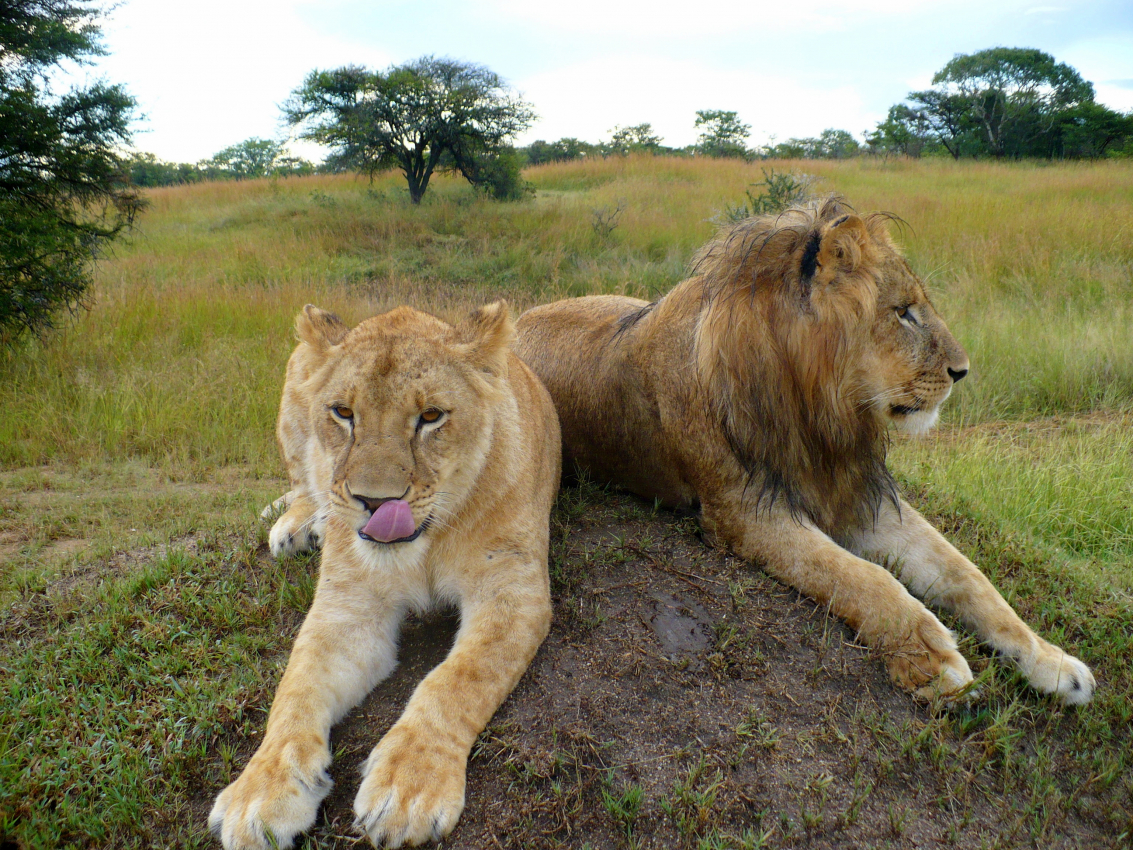
*
The craziest experience was actually what happened after I finished my work at the project. If you were traveling anywhere in April 2010 you may remember what happened. A volcano with a fancy name Eyjafjallajökull, that took me a few months to pronounce correctly erupted causing a halt in flights across Europe, Africa and parts of North America.
I had a connecting flight from Bulawayo to Johannesburg before returning to London, but the day I was about to leave the park I was told not to go to the airport. Some people were offered to stay for an extra 2 weeks, but due to work and university obligations, I wasn’t able to extend my stay.
Instead, along with another volunteer, we took a bus to Bulawayo to spend a night with some friends of his family. They were the British-Zimbabwean family of 3.
Not surprisingly, upon arrival we got welcomed by a giant brick fence with a heavy security system. Once the security cleared us we stepped into a giant multi-bedroom villa with a pool. Something you’d only see in Beverly Hills, but this was in the middle of Zimbabwe where families of 10 would actually share a mud-brick room.
Don’t get me wrong, it was great for me at first as I’ve never seen anything like this in my life. I was a poor 20-year-old foreign student in London who just returned from shoveling shit and getting blasted by elephant snot.
Funnily enough, I don’t have a single picture of this place because I was too distracted by a 7-year-old boy running around the villa showing us a few of his guns, telling us how much fun he has with them.
He told us that he doesn’t go anywhere in town, because it’s dirty and poor so he was being driven to school by a driver. Then he proceeded to shoot some random birds outside, just for fun and went back to playing his video game. His parents didn’t mind it.
They weren’t an exception. Rich teenagers of Zimbabwe got quite a following on Instagram showing off their fortune. As I said – looking back at my experience, I saw first-hand the world of rich white people in Africa and how deceiving can some experiences be.
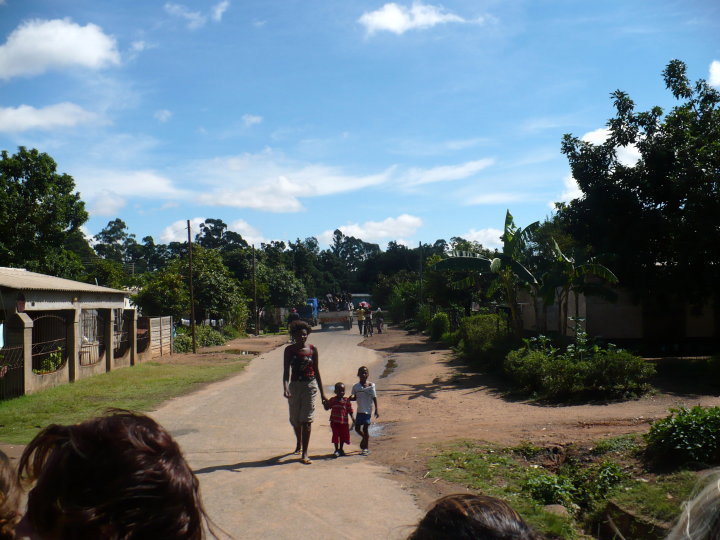


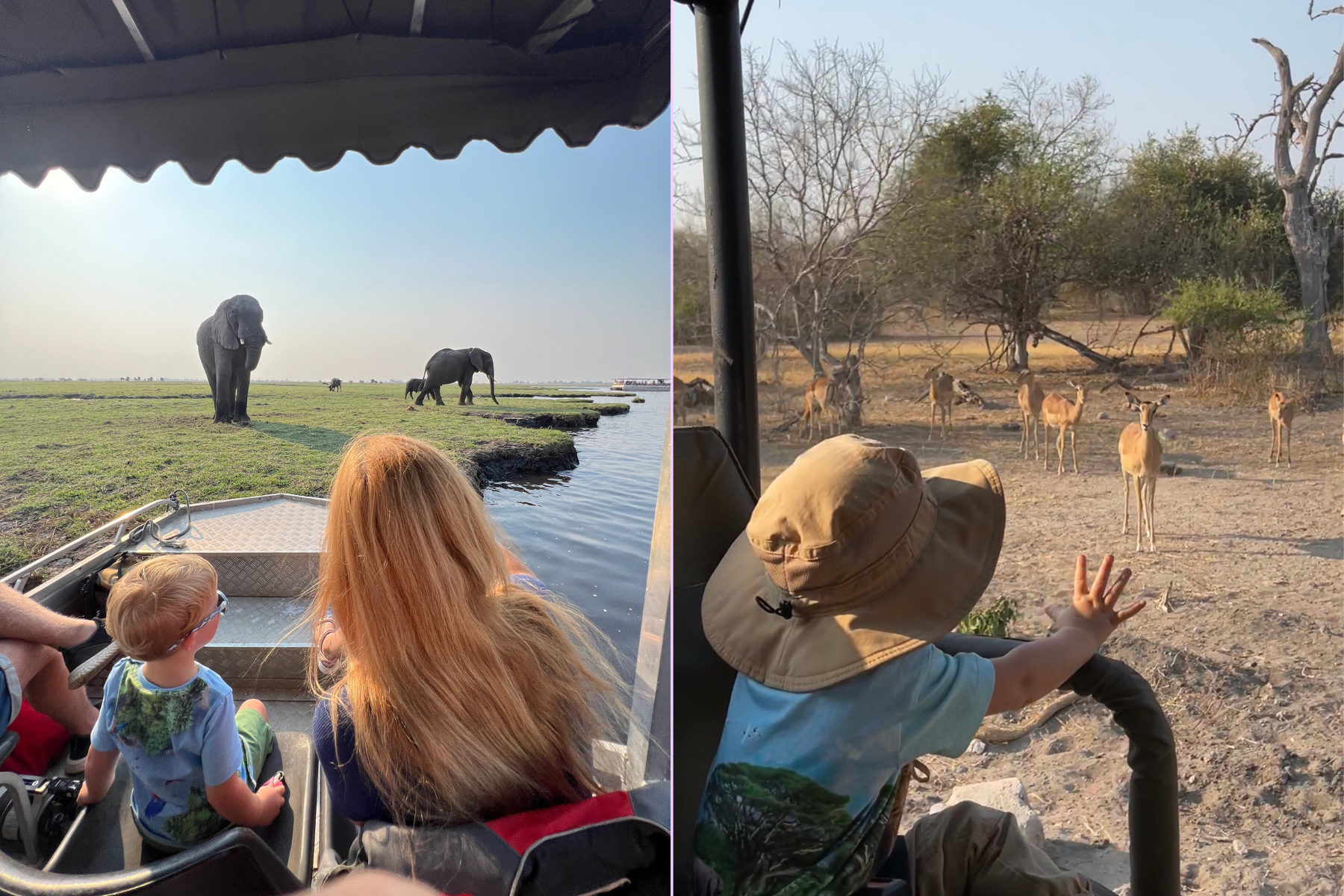



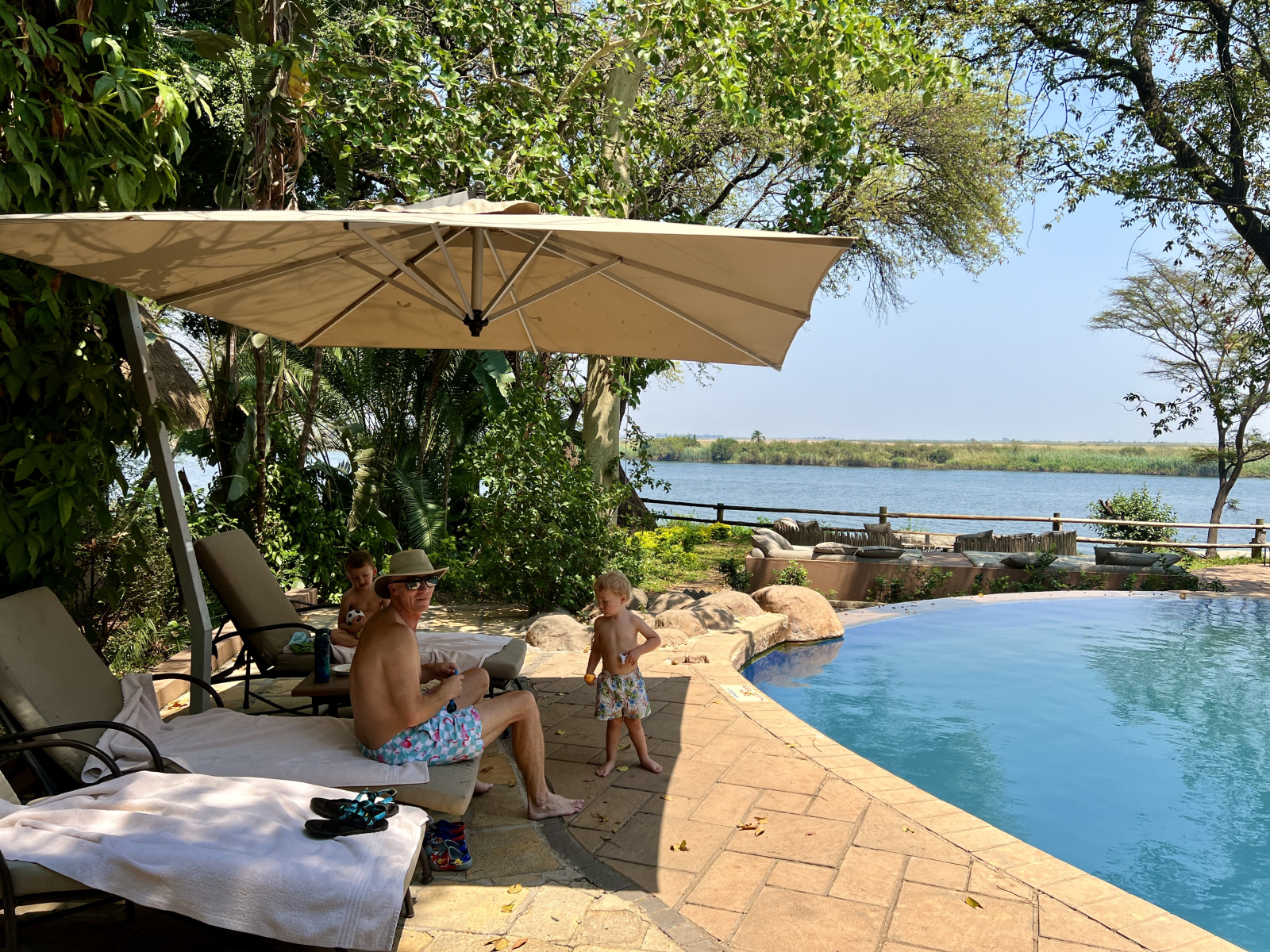
Great read! It’s funny how despite being educated and well versed in the world, many people get involved in animal tourism without realising it is bad. I was very unaware too many years ago. It becomes a very complex issue when there are species on the verge of extinction – I personally am not opposed to some breeding programs where they are released into the wild soon after but it really depends. I haven’t yet watched the Netflix series so looking forward to seeing what all the hype is about…